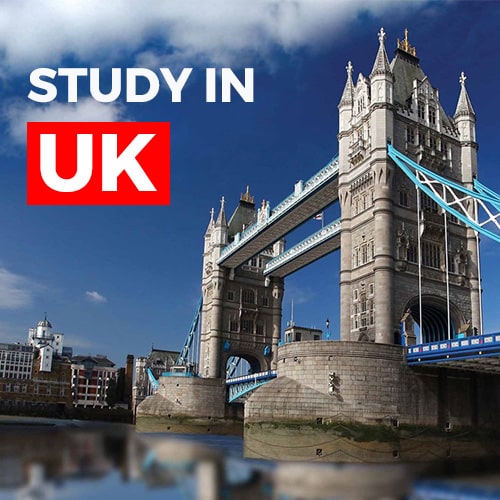Embarking on a journey to study in the United Kingdom is not just about acquiring knowledge but also immersing oneself in a rich cultural tapestry and embracing new experiences. Before setting foot on British soil, it’s crucial to ensure you have all the essentials to make your transition smooth and hassle-free. From essential documents to cultural adaptability tools, let’s delve into the detailed essentials required for travelling to the UK for studies.
When travelling to the UK for studies, there are several essential things you’ll need to ensure a smooth and successful experience. Here’s a comprehensive list of items and documents you should have:
Valid Passport: Ensure your passport is valid for the duration of your stay in the UK. It’s also a good idea to have copies of your passport stored separately in case of loss or theft.
If you’re a non-UK or non-EU student, you’ll need a valid student visa to study in the UK. Make sure to apply for the appropriate visa well in advance and fulfil all the requirements specified by UK Visas and Immigration (UKVI).
Student Visa: If you’re a non-UK or non-EU/EEA student, you’ll need to obtain a Tier 4 (General) student visa or a Student Route visa. Make sure you have all the necessary documents and meet the eligibility criteria for your visa application. To secure a student visa, applicants typically need to provide proof of acceptance from a recognized UK institution, demonstrate proficiency in the English language, show evidence of sufficient funds to cover tuition and living expenses and meet health and character requirements. The student visa not only grants permission to study in the UK but also often allows for part-time work during term time and full-time work during holidays, providing valuable opportunities for gaining experience
Acceptance Letter: Carry a copy of your acceptance letter or offer of admission from your UK educational institution. This document may be required during immigration checks. The acceptance letter plays a crucial role in the process of travelling to the UK for studies. It serves as official confirmation from the educational institution that you have been accepted into your chosen course or program. This letter typically outlines essential details such as the start date of your studies, the duration of the course, any specific conditions or requirements you must meet before enrolment, and information about fees and payments.
In addition to its practical purposes, the acceptance letter also symbolizes a significant achievement in your academic journey. It signifies that your hard work, qualifications, and aspirations have been recognized by the university or college, paving the way for you to pursue your educational goals in a new environment.
Financial Documentation: Provide proof of your ability to support yourself financially during your studies in the UK. This can include bank statements, scholarship letters, or financial aid documents. Inform your bank about your travel plans to avoid any issues with using your debit or credit cards abroad. Consider getting a prepaid travel card for convenience and security.
Create a budget for your expenses, including accommodation, food, transportation, leisure activities, and academic supplies. Monitor your spending and adjust as needed to stay within your financial means.
Health Insurance: It’s crucial to have health insurance coverage while studying in the UK. If you’re an EU/EEA (European student), you can use the European Health Insurance Card (EHIC) or obtain private health insurance. Non-EU/EEA students may need to purchase comprehensive health insurance. Health and safety are paramount considerations when travelling to the UK for studies. Prioritizing your well-being ensures a smooth transition and enhances your overall experience during your time abroad. This insurance should cover medical emergencies, doctor visits, prescription medications, and any necessary treatments or hospitalizations. It’s also crucial to have copies of your medical records, vaccination history, and any prescriptions you may need while in the UK.
Local Currency: When travelling to the UK for studies, understanding the local currency is crucial for managing your finances effectively. The official currency of the UK is the British pound sterling, denoted by the symbol £ and the currency code GBP. Additionally, familiarize yourself with the exchange rates between your home currency and the British pound to budget effectively and avoid unnecessary expenses. Many banks, currency exchange offices, and ATMs are readily available across the UK, making it convenient to exchange money or withdraw cash as needed. Keep in mind any fees or charges associated with currency exchange or international transactions to minimize costs during your stay.
Accommodation Details: Accommodation details are crucial for a smooth transition and comfortable stay when travelling to the UK for studies. Depending on your preferences and budget, you may opt for various accommodation options, each offering unique benefits and considerations.
One popular choice is the team of Housing Hand – the UK’s largest rental guarantor service – which has over a decade of first-hand experience working with tenants and landlords in London. The company provides guarantor services to tenants, which means that landlords continue to receive rent even if the tenant’s circumstances change and they become unable to pay.
The guarantor service benefits both landlords and tenants, providing peace of mind on both sides of the rental agreement. This is particularly important in London, where competition for rental properties can be intense.
Another choice for international students is university-managed accommodation. Many universities in the UK offer on-campus housing, including dormitories, shared apartments, or single rooms with communal facilities. Other options include private halls, with many of Housing Hands partners, such as Homes For Students, Host, CRM Students & Collegiate. Many students also opt to rent in the private rental sector in house shares, sometimes referred to as HMO (House in Multiple Occupation). These types of properties can be rented through Letting Agents, Landlords and Booking Platforms.
Author
-

Harry is a legal advisor specializing in tenant rights and housing laws in the UK. His articles aim to educate students and expatriates about their rights and the benefits of guarantor services.
View all posts






